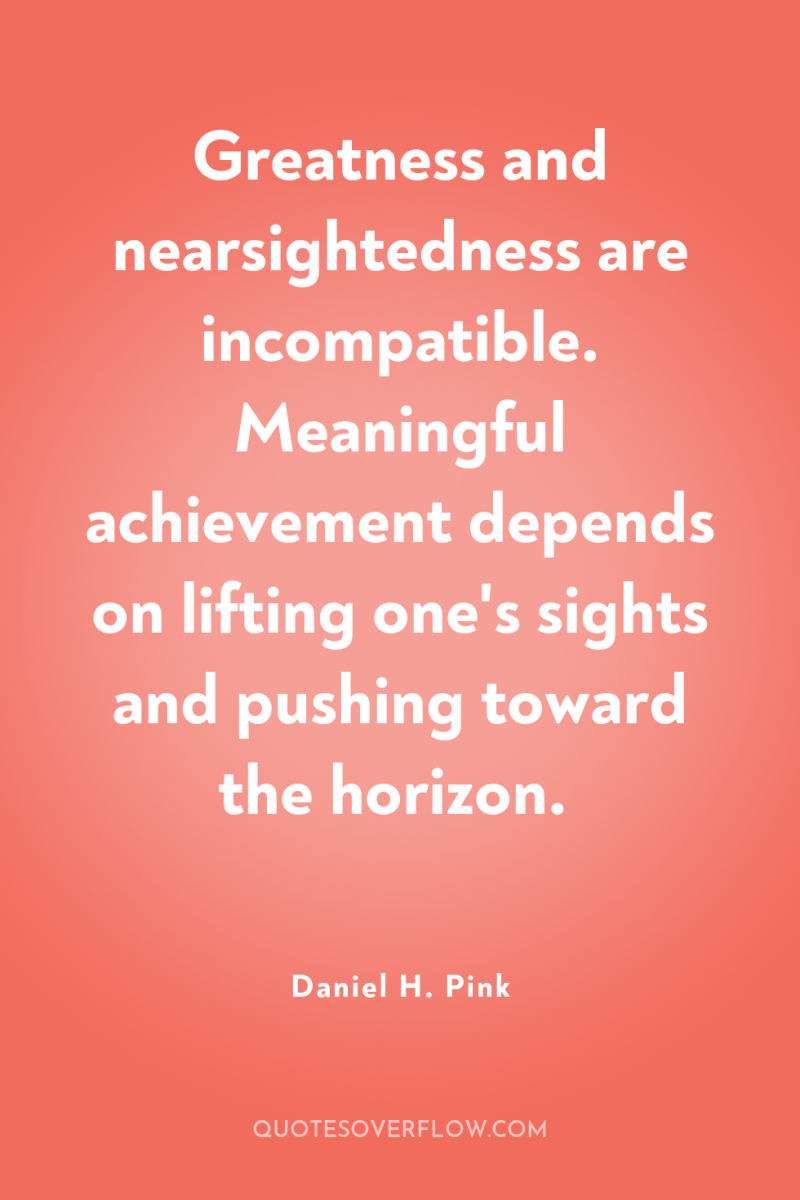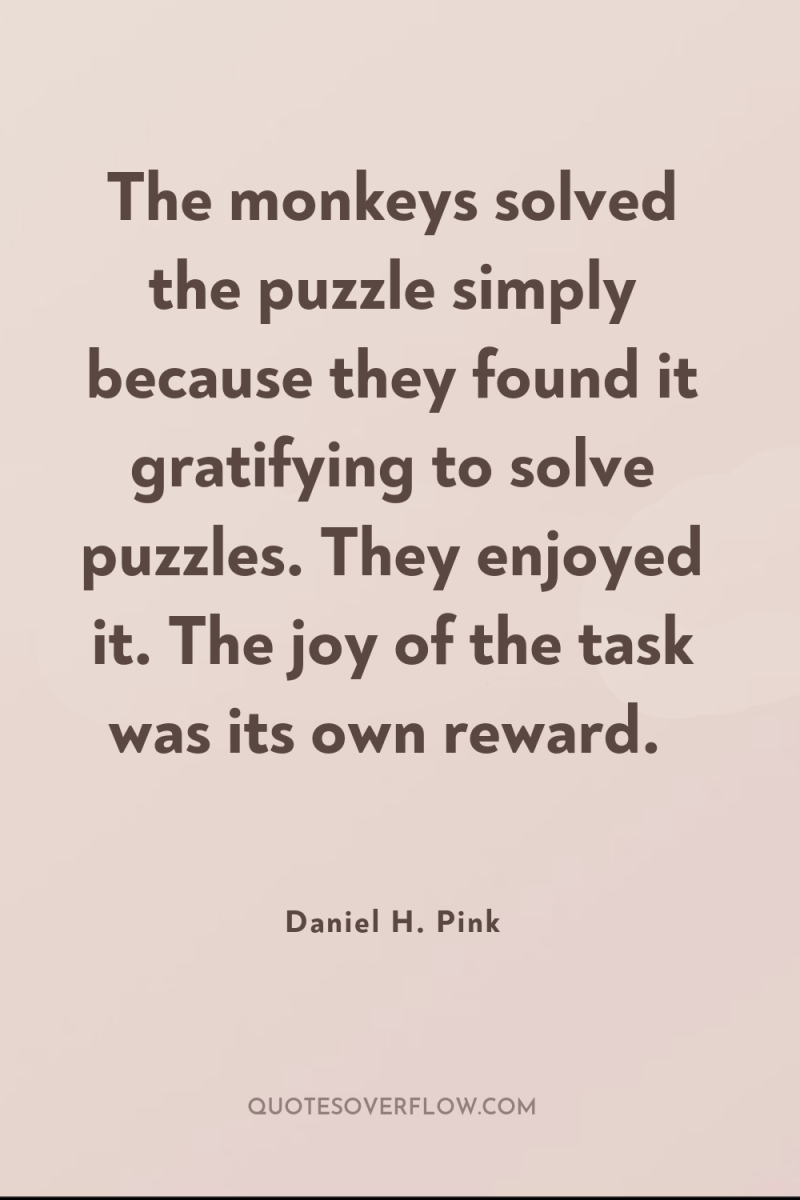
1
Greatness and nearsightedness are incompatible. Meaningful achievement depends on lifting one's sights and pushing toward the horizon.Daniel H. Pink
2
Newtonian physics runs into problems at the subatomic level. Down there--in the land of hadrons, quarks, and Schrödinger's cat--things gent freaky. The cool rationality of Isaac Newton gives way to the bizarre unpredictability of Lewis Carroll.Daniel H. Pink

3
The monkeys solved the puzzle simply because they found it gratifying to solve puzzles. They enjoyed it. The joy of the task was its own reward.Daniel H. Pink
4
...if people do things for lunk-headed, backward-looking reasons, why wouldn't we also do things for significance-seeking, self-actualizing reasons? If we are predictably irrational - and we clearly are- why couldn't we also be predictably transcendent?Daniel H. Pink
5
Motivation 1.0 presumed that humans were biological creatures, struggling to obtain our basic needs for food, security and sex. Motivation 2.0 presumed that humans also responded to rewards and punishments. That worked fine for routine tasks but incompatible with how we organize what we do, how we think about what we do, and howwe do what we do. We need an upgrade. Motivation 3.0, the upgrade we now need, presumes that humans also have a drive to learn, to create, and to better the world.Daniel H. Pink
6
In the past, work was defined primarily by putting in time, and secondarily on getting results. "We need to flip that model, ” Ressler told me. “No matter what kind of business you’re in, it’s time to throw away the tardy slips, time clocks and outdated, industrial-age thinking.Daniel H. Pink
7
The ultimate freedom for creative groups is the freedom to experiment with new ideas. Some skeptics insist that innovation is expensive. In the long run, innovation is cheap. Mediocrity is expensive–and autonomy can be the antidote.” Â TOM KELLEY General Manager, IDEODaniel H. Pink
8
Lawyers often face intense demands but have relatively little “decision latitude.” Behavioral scientists use this term to describe the choices, and perceived choices, a person has. In a sense, it’s another way of describing autonomy–and lawyers are glum and cranky because they don’t have much of it.Daniel H. Pink
9
Dan Ariely, author of Predictably Irrational, a book that offers an entertaining and engaging overview of behavioral economics.Daniel H. Pink